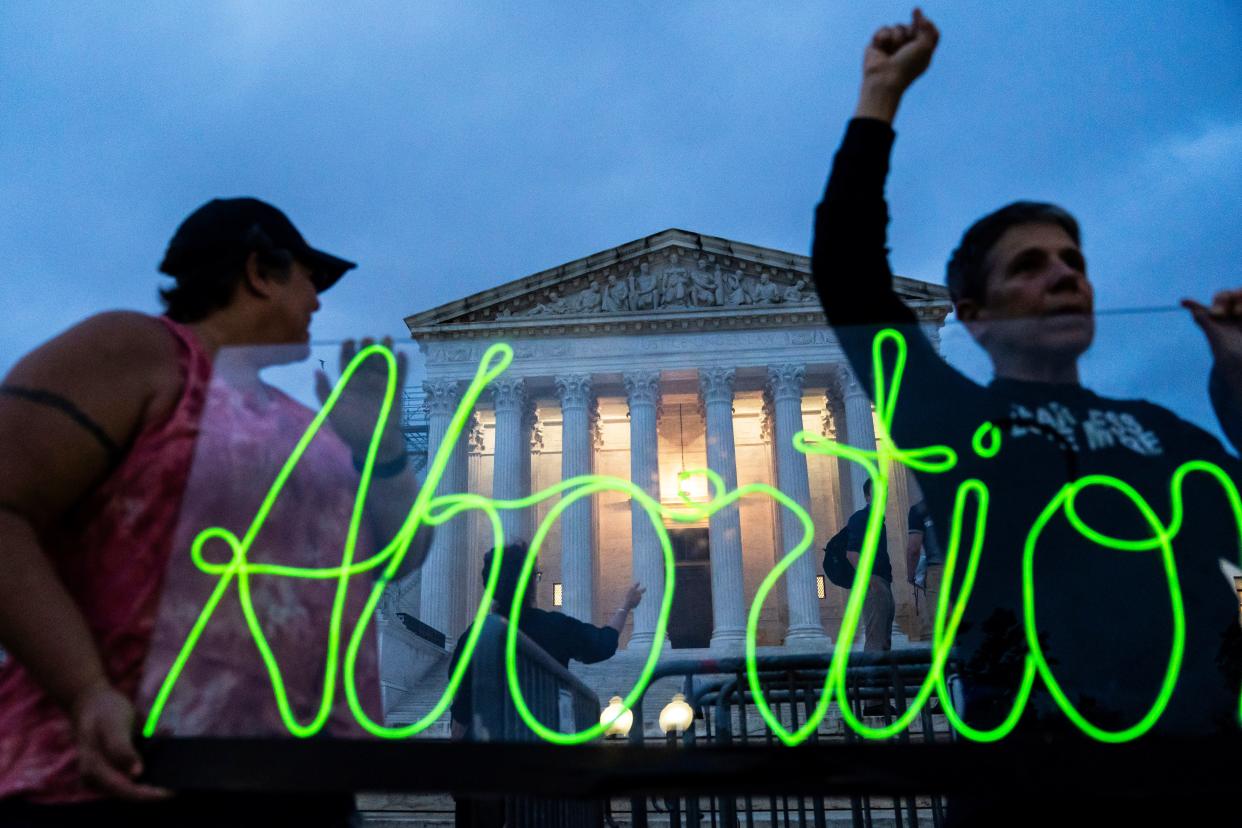California offers abortion training lifeline for medical residents

Bria Peacock chose a career in medicine because the Georgia native saw the dire health needs in her community – including access to abortion care.
Her commitment was sparked early on when she witnessed the discrimination and judgment leveled against her older sister, who became a mother as a teen. When the Supreme Court overturned Roe v. Wade in 2022, Peacock’s thoughts turned back to women like her sister.
“I knew that the people – my people, my community back home – was going to be affected in a dramatic way because they’re in the South and because they’re Black,” she said.
Even though Peacock attended the Medical College of Georgia, she’s doing her obstetrics and gynecology residency at the University of California, San Francisco, where she has gotten comprehensive training in abortion care.
“I knew as a trainee that’s what I needed,” she said.
Since the Supreme Court decision, California has worked to become a sanctuary for people seeking an abortion from states where the procedure is restricted. Now, it’s addressing the fraught issue of abortion training for medical residents, which most doctors believe is crucial to comprehensive OB-GYN education.
The question of how to provide complete OB-GYN training promises to become more urgent as the effects of abortion bans on medical education become clear. Eighteen states restrict or ban abortion to the point of effectively stripping 20% of OB-GYN medical residents of the opportunity to get abortion training, according to the Ryan Residency Training Program in Abortion and Family Planning. That’s 1,354 residents this year out of 5,962 OB-GYN residents nationwide.
In September, California enacted a law making it easier for out-of-state trainees to get up to 90 days of in-person training. The law eliminated the requirement for a training license and allowed training at programs such as Planned Parenthood that are affiliated with accredited medical schools.
The California Academy of Family Physicians applauded the law. However, it doesn’t solve all the problems of increasing access to abortion training.
Restrictions to training
First, it’s not yet clear how many spots will be available. “Many sites were already at their training maximums,” said Michael Belmonte, a fellow with the American College of Obstetricians and Gynecologists.
In the first year after Roe was overturned, 125 out-of-state doctors did residencies in programs that incorporate Ryan’s abortion training model, according to Kristin Simonson, director of programs and operations.
Even when opportunities to learn abortion care are available, those seeking training are proceeding with caution.
“Residents arranging to travel for abortion training, like patients who travel for abortion care, are making arrangements quietly so they do not draw unwanted attention or repercussions,” said Janet Jacobson, medical director at Planned Parenthood of Orange and San Bernardino Counties, which just trained its first resident from a state with an abortion ban.
Moreover, some states that restrict abortion also aim to restrict medical students and residents from getting training in the procedure elsewhere.
One OB-GYN resident who asked to remain anonymous for fear of reprisal said she’s keen on getting comprehensive abortion care training in California – but can’t.
“My program will not allow us to perform abortions in other states,” she said.
Administrators worry it would subject residents to litigation because the program is state-funded, she said: “They’re being very conservative in order to protect us.”
Pamela Merritt, director of Medical Students for Choice, pointed to a Kansas law that requires repayment of state medical school scholarships – with 15% interest – if residents perform abortions or work in clinics that perform them except in cases of rape, incest, or a medical emergency.
Southern medical students’ experiences
Jessica Mecklosky, a pediatric resident at UCSF, hopes to focus on adolescent medicine, including reproductive health, to offer young patients choices about their futures. Her medical school experience in Louisiana is a prime example of why abortion training in California and other states is so crucial, she said.
Although she knew Louisiana had abortion restrictions, she didn’t realize how much those restrictions would interfere with her ability to learn: There were just three abortion clinics in the entire state, and none was available for her training.
“I was actually not going to be able to see any elective abortion procedures throughout medical school,” she said. There was an opportunity for a day’s training in her third year, “but, unfortunately, Roe fell before I was able to do that.”
Through Medical Students for Choice, a group that provides stipends of up to $1,200, Mecklosky got an abortion care rotation at Montefiore Medical Center in New York during her summer break.
Mecklosky is torn about where she’ll land after her residency. She may return to Louisiana and advocate for legislative changes in reproductive health while attending to patients and making forays to other states to provide abortions, she said.
Doctors note that abortion training is not just for ending pregnancies. Peacock recalled a patient who started hemorrhaging badly after delivery. She and her team performed a dilation and curettage – a procedure commonly used to terminate pregnancy.
“If we did not have that skill set, and the patient continued to bleed, it could have been life-taking,” said Peacock.
After her training, Peacock is adamant about returning to Georgia, where abortions are banned after six weeks. “I’m still going to provide abortions, whether that’s in Georgia or I need to fly to a different state and work in abortion clinics for a week out of the month,” she said. “It would definitely be a big part of my work.”
This article was produced by KFF Health News, which publishes California Healthline, an editorially independent service of the California Health Care Foundation. KFF Health News is a national newsroom that produces in-depth journalism about health issues and is one of the core operating programs at KFF – an independent source of health policy research, polling and journalism.
This article originally appeared on USA TODAY: California offers abortion training lifeline for medical students

